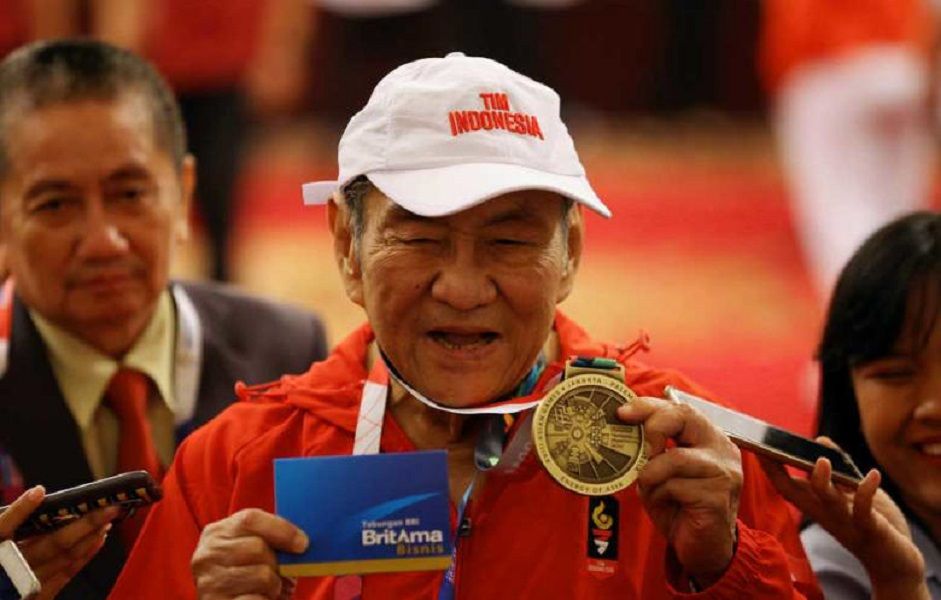
The Tale of the Conglomerates (Serial 1): Michael Bambang Hartono, from Fireworks Factory to the Richest
JAKARTA – Michael Bambang Hartono, a tycoon from Kudus, Central Java, has again won the title as one of the 2021 richest people in Indonesia according to Forbes Magazine 2021. Placed second, Michael’s wealth can only be defeated by one person. Then who is the number one richest person in the country? None other than […]
Insight Langit Biru
JAKARTA – Michael Bambang Hartono, a tycoon from Kudus, Central Java, has again won the title as one of the 2021 richest people in Indonesia according to Forbes Magazine 2021. Placed second, Michael’s wealth can only be defeated by one person.
Then who is the number one richest person in the country? None other than that, the conglomerate is Michael’s younger brother, Robert Budi Hartono. The Hartono brothers have been recorded as having occupied the throne labelled as ‘money bags’ for 13 consecutive years.
Globally, Michael’s wealth is placed at number 89 when the publication of Forbes was released with a total wealth of US$19.7 billion, equivalent to Rp286.5 trillion. Of the 100 richest people, Hartono duo is the only businessman from Southeast Asia.
- 11 Bank Biayai Proyek Tol Serang-Panimbang Rp6 Triliun
- PTPP Hingga Mei 2021 Raih Kontrak Baru Rp6,7 Triliun
- Rilis Rapid Fire, MNC Studios Milik Hary Tanoe Gandeng Pengembang Game Korea
- Anies Baswedan Tunggu Titah Jokowi untuk Tarik Rem Darurat hingga Lockdown
- IPO Akhir Juni 2021, Era Graharealty Dapat Kode Saham IPAC
In total, there are 2,755 billionaires who come from various countries perched on the list of the world’s richest people. This number has increased by 660 people compared to last year. Of the total 2,755 billionaires in the world with 18 of them are Indonesians.
Based on the latest Forbes data on Wednesday, April 21, 2021 at 09.47 Western Indonesian Time, Michael’s wealth shrank 0.95% or US$172 million to US$17.8 billion.
Family Company
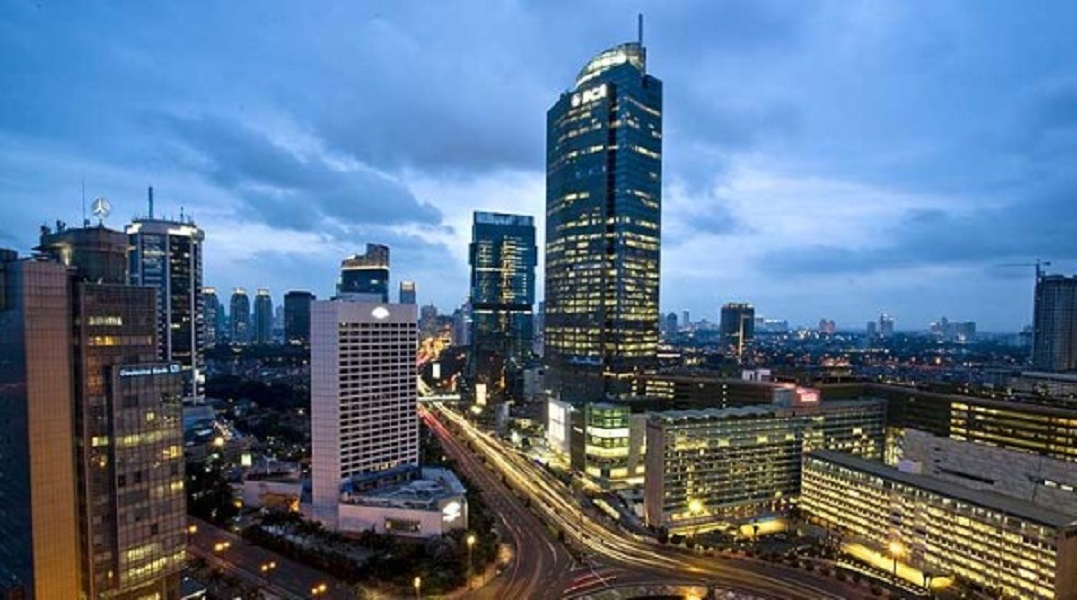
Menara BCA. / Istimewa
Quoting various sources, the Hartono family’s tusks of wealth are indeed dominated by two main businesses, namely cigarettes through PT Djarum and banking through PT Bank Central Asia Tbk (BBCA). Historically, the business of this conglomerate family started with his father, Oei Wie Gwan, a Chinese who had migrated to the archipelago.
When he arrived in Kudus, Central Java, Indonesia, Oei Wie Gwan set up a fireworks factory called “Leo”. The factory was noted to be successful and became an exporter. Unfortunately, his factory went out of business due to the fire that occurred at that time.
Not lingering for long, Oei Wie Gwan started his business again by buying a kretek cigarette factory called Djarum Gramophon on April 21, 1951. At the start of his business, the kretek factory only had 10 employees.
- 11 Bank Biayai Proyek Tol Serang-Panimbang Rp6 Triliun
- PTPP Hingga Mei 2021 Raih Kontrak Baru Rp6,7 Triliun
- Rilis Rapid Fire, MNC Studios Milik Hary Tanoe Gandeng Pengembang Game Korea
- Anies Baswedan Tunggu Titah Jokowi untuk Tarik Rem Darurat hingga Lockdown
- IPO Akhir Juni 2021, Era Graharealty Dapat Kode Saham IPAC
With limited conditions, Oei Wie Gwan even joined in rolling cigarettes together with his employees. The fire accident destroyed Oei Wie Gwan’s business once again.
After that, Oei Wie Gwan passed away before reviving his business. In the midst of grief over the death of their father, Michael and Budi Hartono, who were still economics students at Diponegoro University, Semarang, returned home and continue their father’s business.
Djarum Cigarette
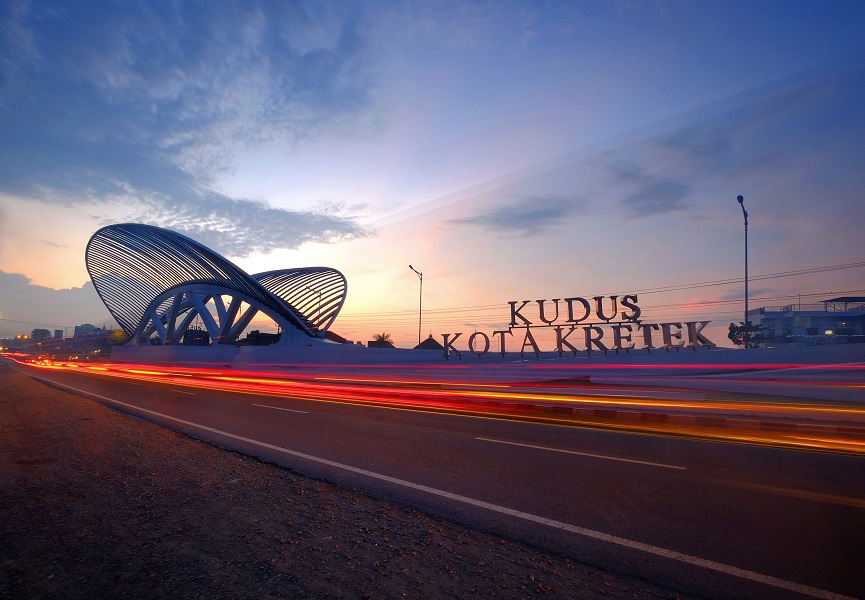
Landmark Kudus Kota Kretek. / Djarum.com
With the compactness and business shrewdness of the Hartono duo, Djarum cigarettes are growing rapidly in their hands. Thanks to the green fingers of the Hartono brothers, Djarum cigarettes are very popular as hand-rolled kretek cigarettes that produce in large quantities.
To maintain quality, hand-rolled kretek cigarettes are done manually by workers. Until finally, Djarum cigarettes began to diversify their products by using cigarette rolling machines in 1970.
That year, Djarum also established a Research and Development Center for the purposes of developing cigarettes and also the first step for exports. It did not take long, two years later Djarum cigarettes were able to penetrate the global market thanks to the good quality of their cigarettes.
- 11 Bank Biayai Proyek Tol Serang-Panimbang Rp6 Triliun
- PTPP Hingga Mei 2021 Raih Kontrak Baru Rp6,7 Triliun
- Rilis Rapid Fire, MNC Studios Milik Hary Tanoe Gandeng Pengembang Game Korea
- Anies Baswedan Tunggu Titah Jokowi untuk Tarik Rem Darurat hingga Lockdown
- IPO Akhir Juni 2021, Era Graharealty Dapat Kode Saham IPAC
Not only exports to Asia, Djarum cigarettes have also been circulating in the United States (US) and Australia. In 1981, the Djarum Super product was introduced in the US. Whereas, the Djarum Special was introduced in the US in 1983.
With a growing market, Djarum added product variants through various special trademarks for the international market, such as Djarum Cherry, LA Menthol Lights, Djarum Menthol, LA Lights, Djarum Vanila, Djarum Black Supersmooth, and Djarum Black Menthol Supersmooth.
Polytron, Electronic Sovereign of the 90s

Televisi premium dari Polytron ini dihargai Rp 36 juta
Not satisfied with the success in the tobacco industry, the Hartono brothers began to be attracted to other industries. In 1978, they started working in the electronics industry by producing electronic goods under the Polytron trademark.
Often considered a Japanese product, Polytron actually captures the hearts of its consumers because of its good quality at competitive prices with other local or international brands. Polytron’s success is reflected in the 50% share of the audio electronic device market in 1990.
Polytron practically became the number one electronic brand in Indonesia at that time. Predictably, the warm reception of the domestic market made the Hartono brothers expand their business empire again.
Two years later, Polytron began to expand into the international market by exporting colored TV to several countries in Europe. Entering the 2000s, Polytron continued to develop its products to produce the latest electronic devices, such as the first smartphone released in 2013.
The Windfall of BCA During the Monetary Crisis
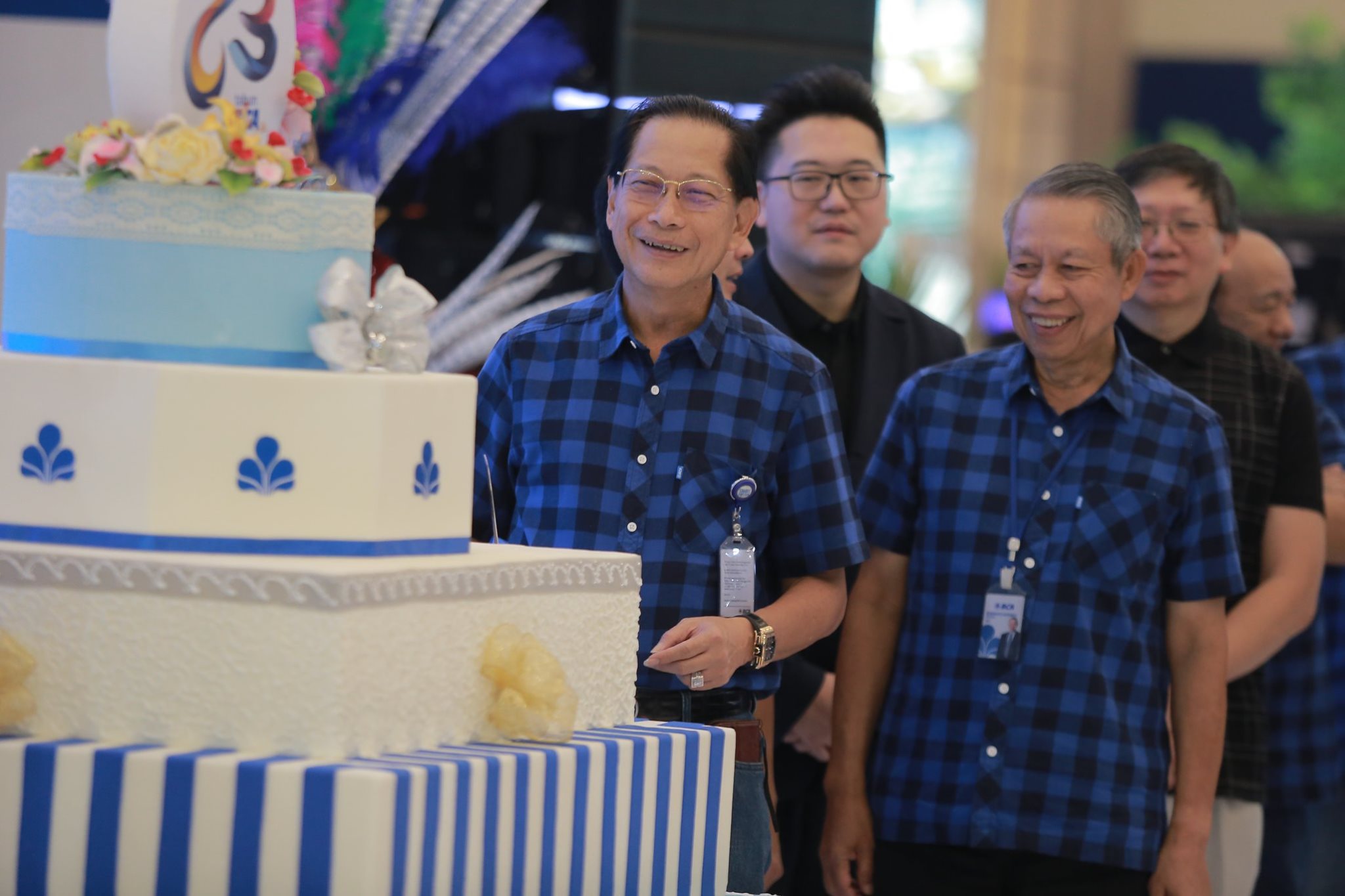
Presiden Direktur BCA Jahja Setiaatmadja. / Facebook @BankBCA
Forbes Magazine reports that two-thirds of Michael Hartono and his siblings’ wealth comes from investing in BCA shares. Initially, the Hartono brothers took over the company’s shares from the Salim Group, which was rocking during the 1997-1998 economic crisis.
The transaction was like a windfall for the Hartono family. If it weren’t for the monetary crisis, the Hartono brothers might not have bought BCA, which was actually in the hands of tycoon, Sudono Salim, the father of Anthoni Salim, owner of the Salim Group.
The Djarum Group through PT Dwimuria Investama Andalan currently owns 54.94% shares in BCA. Meanwhile, the remaining 45.06% was released to the public.
In today’s trade, the market capitalization of the issuer coded as BBCA shares reached Rp768.62 trillion with a share price per share at Rp31,025 per share.
Down-to-Earth Figure
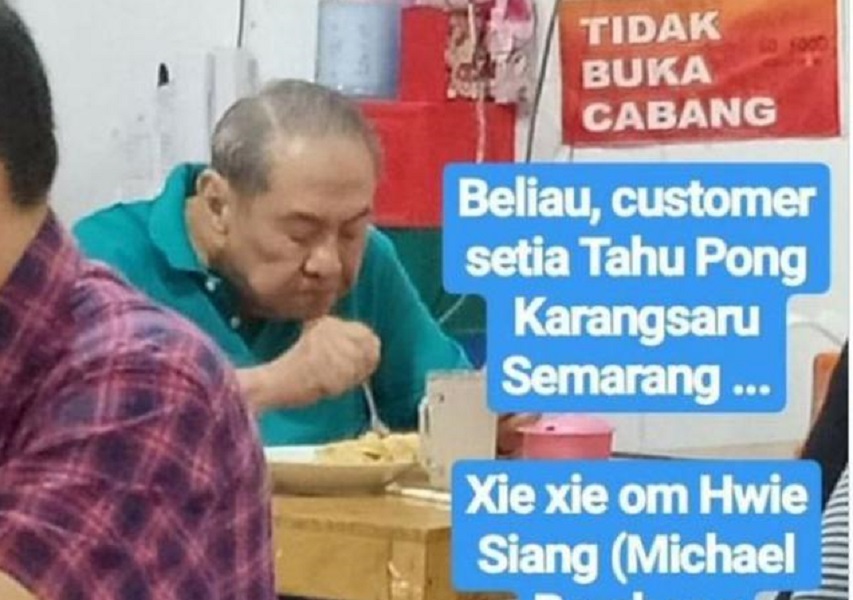
Konglomerat Michael Bambang Hartono saat menyantap makanan di warteg / Istimewa
Behind the gleaming of Michael’s wealth, who would have thought that this 81-year-old man had shocked the public because he was caught on camera eating on the side of the road. In 2019, PT Djarum’s Senior Manager Corporate Communications, Budi Darmawan, confirmed a viral photo similar to Michael eating at a tofu shop.
He did not deny that his boss did have a simple preference of food. One of his favorite culinary delights is Tahu Pong in Semarang. Apart from that, Michael also likes the dishes of his homeland, such as Soto Kudus, Opor Sunggingan, Soto Kerbau, and others.
In addition to being successful in the business world, Michael also made achievements in the field of bridge sports at the 2018 Asian Games. As a bronze medalist, Michael received a bonus of Rp250 million without tax deductions as a form of appreciation. Michael stated that all bonuses would be given to the organization.
His love for sports is also evidenced by the Djarum Badminton Association which was officially established in 1969. Initially, this association was founded only as a hobby activity for employees of the Djarum cigarette factory in Kudus. However, in 1969, it was not only employees who participated in the training, but also players from outside.
This article is a series of special reports that will be continued in the next issue entitled “The Tale of the Conglomerates.”
Writer: Ananda Astri Dianka
Editor: Sukirno
